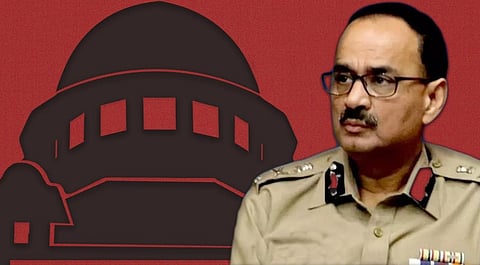
- Latest Legal News
- News
- Dealstreet
- Viewpoint
- Columns
- Interviews
- Law School
- Legal Jobs
- हिंदी
- ಕನ್ನಡ

The cases filed by Central Bureau of Investigation (CBI) Director Alok Verma and NGO Common Cause challenging the decision of the Central government to send Verma on leave continue today at the Supreme Court.